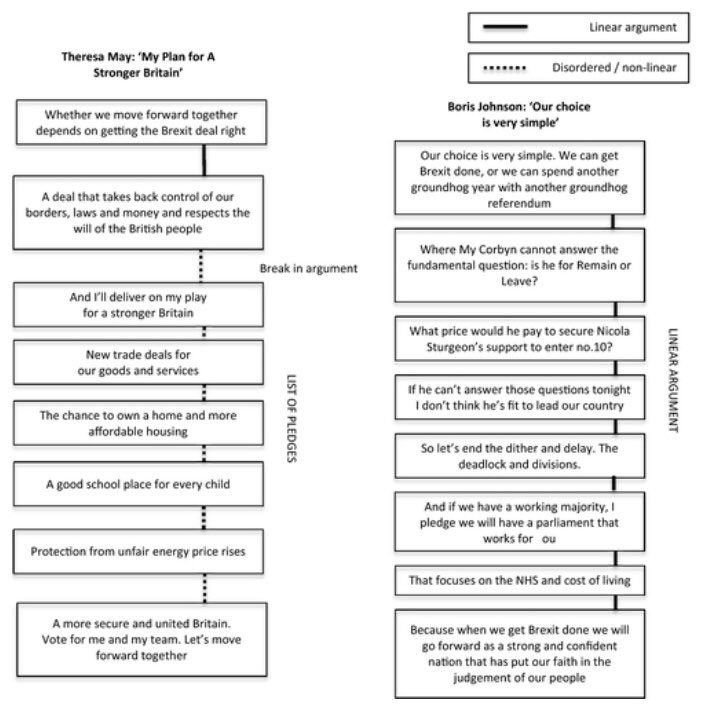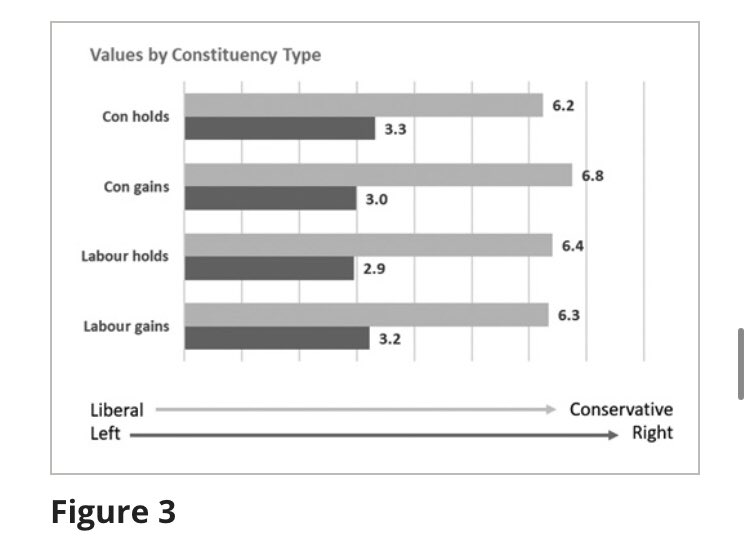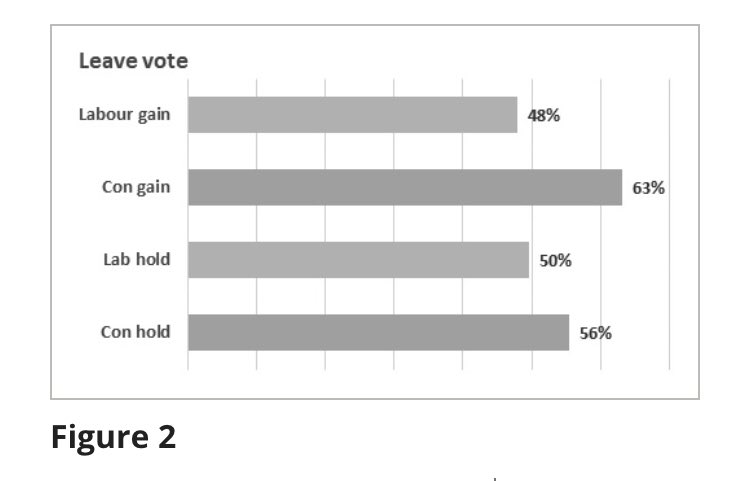THREAD: How did Boris Johnson win the general election? Prob not the Q on everyone’s lips right now but hey. In true academic style, ie ten months later, I’ve published a piece with @ChristabelCoops in @po_qu
onlinelibrary.wiley.com/doi/10.1111/14…
onlinelibrary.wiley.com/doi/10.1111/14…
We argue that key to Johnson’s successful manoeuvre was prorogation and the no deal fantasy. It was a performative gesture that crucially didn’t require taking the country close to a no deal scenario.
onlinelibrary.wiley.com/doi/10.1111/14…
onlinelibrary.wiley.com/doi/10.1111/14…
Johnson identified three target groups: (a) Brexit hardliners, (b) Brexit compromisers, (c) Remain compromisers. The much more adversarial approach Johnson took helped him win support from the hardliners that opposed May’s deal. 

Once Johnson got a deal, he shifted to winning support from Remain compromisers. According to the Lord Ashcroft on the day poll 18% of Tory voters were 2016 Remainers who believed “the result to leave the EU must be honoured and we need to get on with it” onlinelibrary.wiley.com/doi/10.1111/14…
We then analysed Johnson’s campaign messaging in 2019 against May’s in 2017. And show how Johnson ran a much more unorthodox, “leftist’ Tory campaign.
Unlike May, his argument was linear ie each step followed logically from the previous one.
Unlike May, his argument was linear ie each step followed logically from the previous one.

This allowed him to - very cleverly we reluctantly admit - link a host of other issues that people cared about to moving on from Brexit.
onlinelibrary.wiley.com/doi/10.1111/14…
onlinelibrary.wiley.com/doi/10.1111/14…
The new electoral coalition that Johnson pulled together made significant inroads into the left behind economic geographies of Britain. Tory gains from Labour tended to be low wage, low house price, low graduate, low levels of ethic diversity and higher rates of social housing.
This leftish Tory campaign made inroads into a leftish electorate. But we suggest caution against seeing the former “Red Wall” as completely alien to the rest of Britain. The differences between the ‘average’ voter in these places and the ‘average’ voter elsewhere are limited. 



What Johnson did was appeal very successfully to particular voters in these seats who were prepared to switch. Not everyone in the Red Wall was drawn behind this narrative and many of these seats are now marginals. onlinelibrary.wiley.com/doi/10.1111/14…
We venture a counter factual: if Labour had accepted a GE in Sept 2019 it would have forced Johnson to seek a mandate for no deal. While a few people in Labour circles argued for this - you know who you are - you can count them on one or two hands at most onlinelibrary.wiley.com/doi/10.1111/14…
Also Labour could have changed leader after the 2019 Euroelections.
The article is also Open Access 👏
End of thread.
onlinelibrary.wiley.com/doi/10.1111/14…
The article is also Open Access 👏
End of thread.
onlinelibrary.wiley.com/doi/10.1111/14…
• • •
Missing some Tweet in this thread? You can try to
force a refresh






